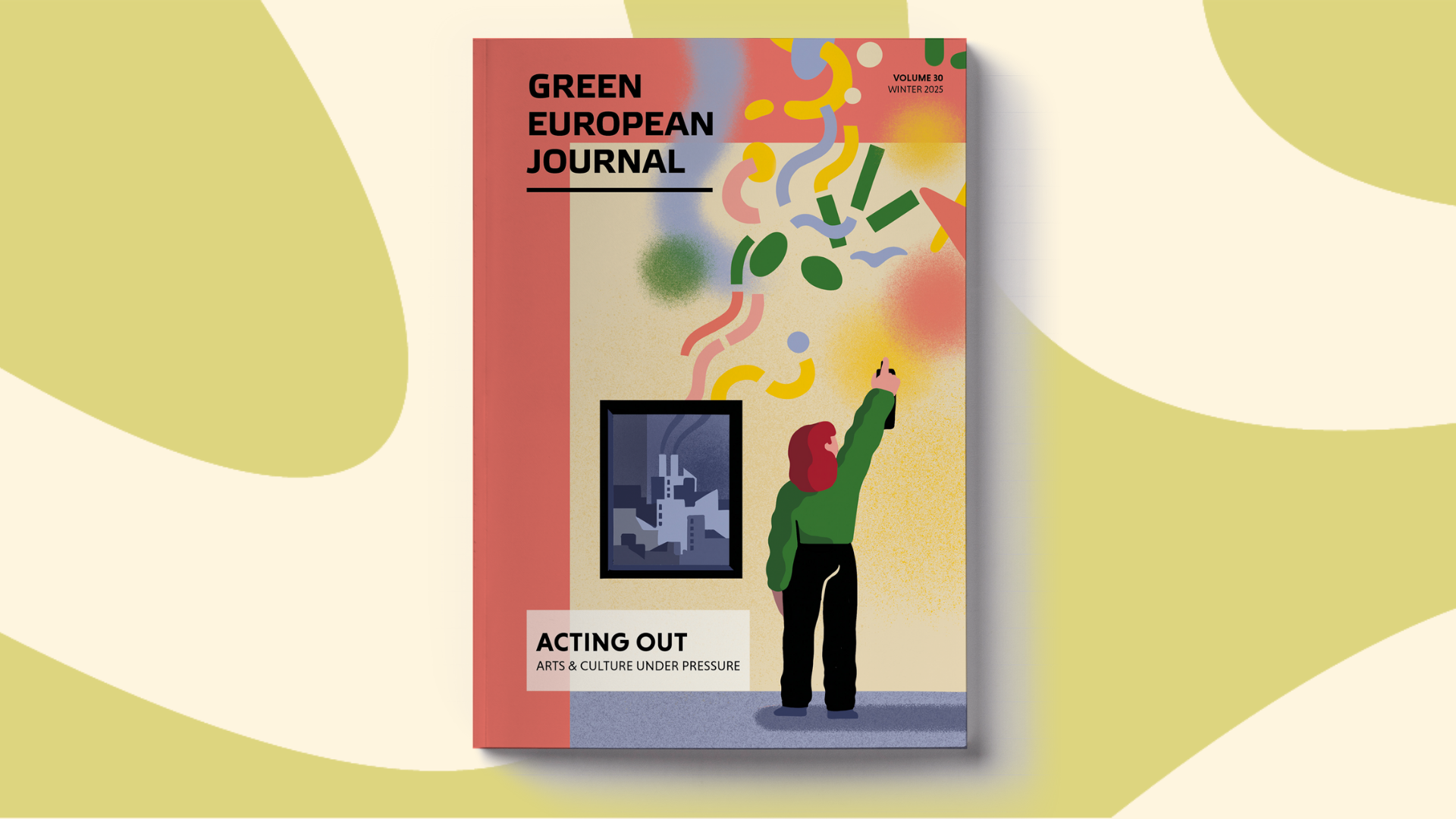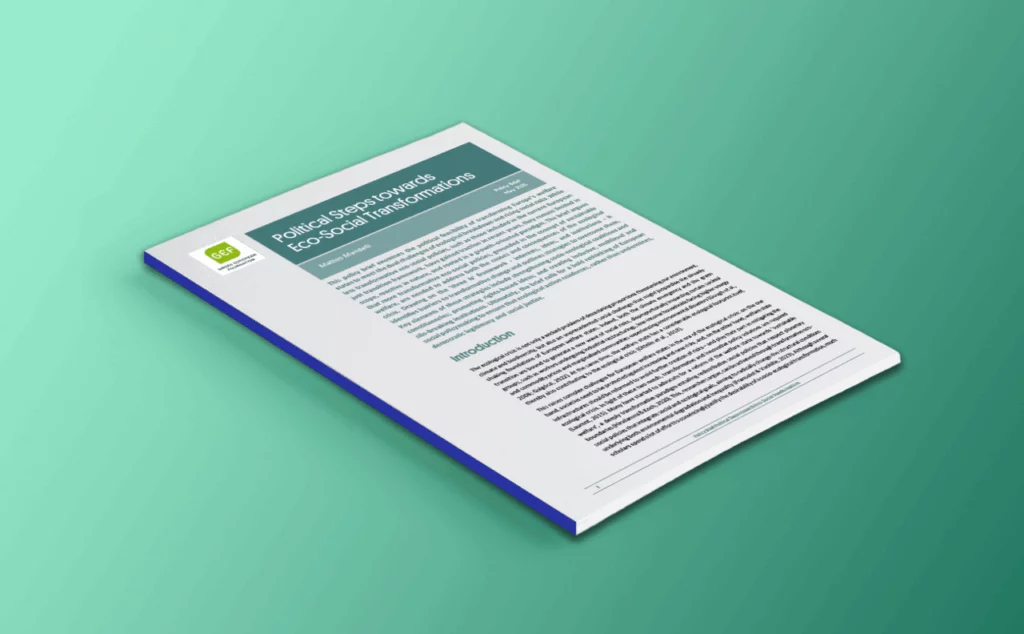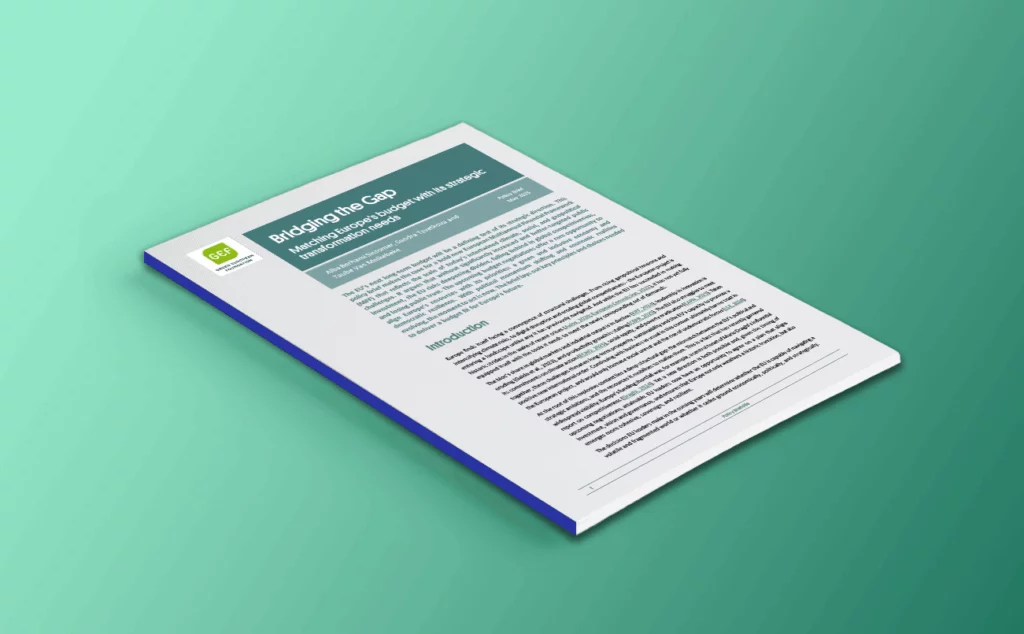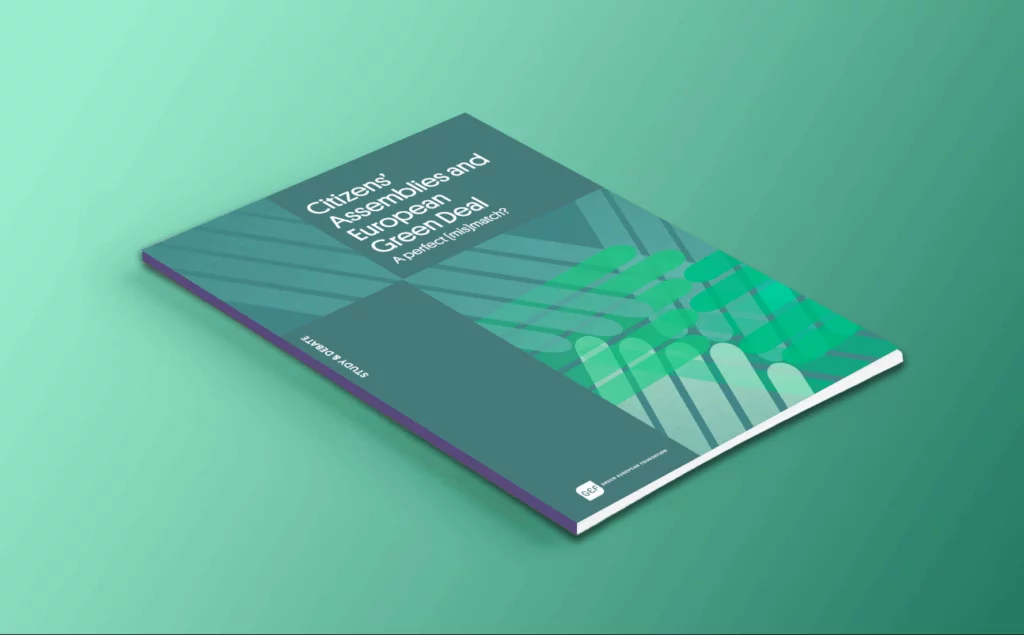The Green European Foundation is currently seeking a full-time Communications Assistant.
About the Vacancy
We are currently looking for a Communications Assistant to support the work of the Green European Foundation (GEF). The successful candidate will support the Green European Foundation’s outreach by managing digital content across social media, newsletters, and websites, ensuring consistent and engaging communication. They will contribute to visual design and event and policy communications. The role also involves monitoring analytics, coordinating with service providers, and assisting with reporting to strengthen the impact of GEF’s communication strategies.
Main Tasks
VISUAL DESIGN
- Design visually engaging materials such as graphics, banners, and promotional content for social media, websites, newsletters, and events
- Assist in the preparation of communication assets for campaigns, events, and reports, ensuring high-quality visual presentation in line with branding guidelines
- Occasionally support video and audio production and editing for multimedia content
OUTREACH
- Coordinate the GEF newsletters
- Develop and monitor a holistic communications strategy for GEF, in coordination with GEF’s Management and Head of Units
- Coordinate digital outreach efforts across the organisation
- Provide support in assessing the objectives and impact of communications efforts and campaigns
- Support colleagues in tailoring their communications efforts to different audiences, from policymakers to partners, activists, or European citizens
- Provide support in finding relevant policy and news hooks to increase the reach and impact of GEF’s content
- Track social media, newsletters and website analytics and prepare reports to inform future communication strategies
SOCIAL MEDIA AND WEBSITE
- Manage GEF and support Green European Journal social media channels
- Draft, refine and provide guidance across teams on tone, style, and content that resonates with target audiences
- Provide support to team members in drafting and managing website content
- Liaise with service providers to maintain and update GEF and GEJ websites, ensuring functionality, user experience, and visual consistency
EVENT SPECIFIC COMMUNICATIONS
- Develop and implement communication plans, coordinating teaser campaigns, targeted outreach to partners and relevant target audiences, etc
- Ensure smooth updates to the GEF webpage and social media coverage during GEF events
- Liaison and briefing with designers, videographers, photographers in relation to GEF events
OTHER
- Report on communication activities and their outcomes
- Assist with administrative tasks related to communications
- Ensure compliance with privacy policies and data protection standards, maintain transparent reporting, and support auditing processes.
- Support in the maintenance of archives
What we are looking for
- Degree in communications, media, public relations, political science or a related field (or equivalent professional experience).
- Strong written and verbal communication skills in English.
- At least 2 years of professional experience in digital communications.
- Good working knowledge of visual design tools (e.g. Canva, Adobe Creative Suite).
- Experience creating engaging content for digital platform.
- Good organisational and administrative skills, attention to detail.
- Technology-savvy, and good command of office software (MS Office, project management tools, etc.).
- Interpersonal skills and eagerness to work in a political and intercultural environment.
- Proactive attitude and openness towards a variety of tasks.
- Commitment to GEF’s mission and team values (solidarity, respect, openness, sustainability, autonomy).
- Legal right to work in Belgium (we are not in position to support work application permits for this role).
Desired
- Knowledge of additional European languages.
- Experience in video and audio editing for multimedia content.
- Familiarity with European politics and policy.
- Basic knowledge of GDPR and data protection policies in communications.
- Basic understanding of CRM systems.
What we offer
- A paid position, with a fixed-term contract duration (CDD under the Belgian employment framework)
- Competitive salary, based on GEF’s salary scale, with a midpoint salary at 2500 EUR gross per month
- 13th salary in December
- Food vouchers amounting to 8EUR/worked day (with 1.09EUR employee contribution)
- Full reimbursement of public transport in Belgium
- Paid mobile phone subscription through GEF’s phone bundle
- 150 EUR/month home office and internet allowance
- 250 EUR/year eco-vouchers (depending on previous year’s employment status)
- Hospitalisation insurance for employees and their partners or families
- 2 extra holidays on top of the Belgian legal framework, plus the period between 24 December – 1 January
- 5 days of professional training days per year plus an individual training budget of 1000 EUR/year
- Flexible working time and hybrid office (two days per week teleworking, and up to 4 weeks per year teleworking from abroad)
Starting date: January 2026
Office location: Brussels, Belgium
Please find the full job description and vacancy listing here.
How to apply
Interested candidates should apply by 27th of October, 23:59 (Brussels time), using this form.
Please note that applications will be reviewed on a rolling basis.
The application must include a current CV and a cover letter outlining the motivation for this position, both comprised in a single pdf document which includes the first and last name of the candidate in the document name.
Note: We are not against using AI tools, but we are trying to get to know you as a person.
Depending on the number of applications received, written assignment will be sent to shortlisted candidates. The written assignment takes place indicatively between 30st October and 2nd November. Interviews for the position are planned to take place online on 13th of November.
In case of questions, please send an e-mail to giuseppina.tucci@gef.eu.
GEF is an equal opportunities employer: We are committed to non-discrimination, diversity, and inclusion. We invite candidates of all gender expressions, races, religious beliefs, ethnic/national origins, sexual orientation, age, marital status, disability and minority status to apply. This position is open to nationals of EU/EEA member states or Switzerland, and to non-EU nationals with the right to work in Belgium.









